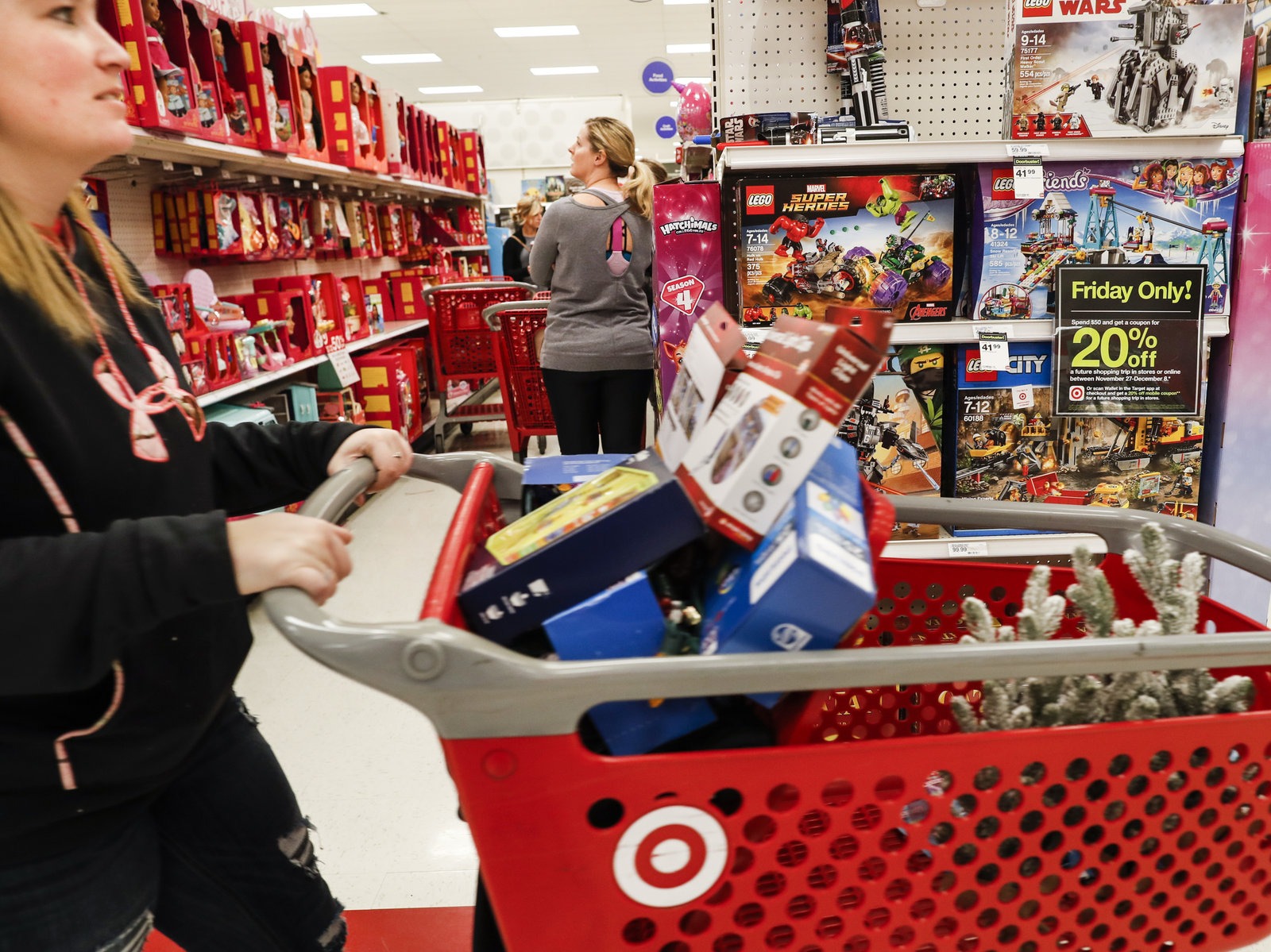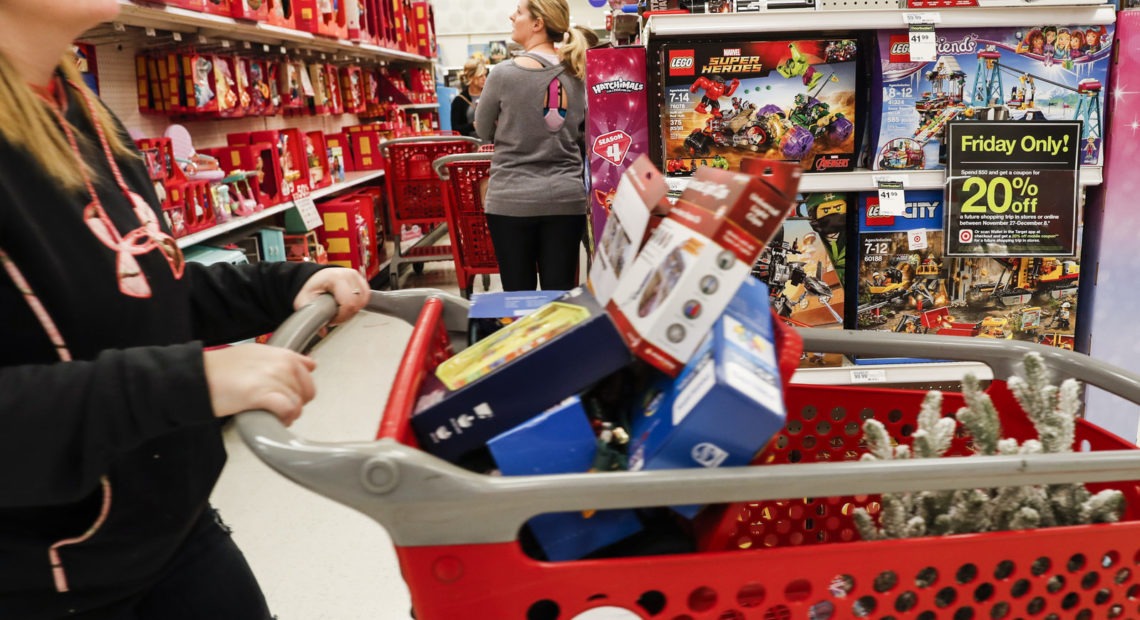
Retailers Warn: Get Ready For Higher Prices If New Tariffs Hit Goods From China
Listen
BY SCOTT HORSLEY
Higher prices will be coming to stores this fall, retailers warn, if President Trump follows through with his threat to slap new tariffs on Chinese imports.
The White House pressed the tariff threat on Friday, even as Trump announced a new agreement aimed at boosting beef exports to Europe. A day earlier, Trump threatened to set a new 10% tariff on $300 billion worth of products imported from China.
Rising trade tensions prompted another sell-off on Wall Street on Friday. The Dow Jones Industrial Average closed down nearly 100 points, or 0.4%, recovering from steeper losses earlier in the day.
More than 40% of all the clothes sold in the United States are made in China, as are nearly 70% of the shoes and 88% of the toys.
These items have been largely untouched by the tariffs the president has already imposed on China over the past year. But they’ll almost certainly be on the target list if additional tariffs are imposed Sept. 1.
“What really does set this list of products apart from all of the earlier tariffs are it’s basically consumer goods,” said Chad Bown, a trade analyst at the Peterson Institute for International Economics. “It’s clothing, and toys, iPhones. All of that stuff has been shielded so far, and that’s what’s likely on the list this time around.”
Retailers say they support the president’s goal of altering China’s unfair trading practices, but they argue tariffs are the wrong way to go about it.
“All of this is just going to add up,” said David French, senior vice president at the National Retail Federation. “At some point, whether it’s this holiday season or some time next year, the full pain is going to come home to roost.”
Store owners might try to absorb the cost of the tariffs at first, to keep customers happy. But ultimately, French said, those import taxes will show up in the prices people pay at the cash register.
The administration downplays those warnings.
“Any consumer impact is very, very small — minuscule,” White House economic adviser Larry Kudlow told reporters Friday. “Consumer spending and consumer wages and salaries are all booming. It’s the strongest part of the economy.”
Consumer spending — which accounts for more than two-thirds of the economy — has been strong, but the trade war is taking a toll. While unemployment remains a low 3.7%, the Labor Department said Friday that hiring has downshifted, with employers adding about 140,000 jobs in each of the last three months — down from about 233,000 in final months of last year.
Imports of goods from China fell 12% in the first half of the year, according the Census Bureau. But exports to China fell 18%. China has not only imposed retaliatory tariffs on U.S. exports, but it has also relaxed tariffs on competing products from other countries.
“That puts American exporters at a disadvantage,” Bown said. “They’re getting hurt twice — by the retaliatory tariffs, and now they’re having an even more difficult time competing in the Chinese market with their European, Canadian, Japanese competitors.”
Farmers and ranchers have been particularly hard hit by the president’s trade battles, as other countries have targeted farm goods in an effort to score political points here in the U.S.
Cattle ranchers got some relief on Friday, with an agreement to allow more American beef to be sold duty-free in Europe.
“This is a tremendous victory for American farmers, ranchers, and of course European consumers, because American beef is considered the best in the world,” Trump said during a White House ceremony, surrounded by ranchers in broad-brimmed hats.
The deal with Europe applies a thick steak to the black eye that U.S. exporters have been nursing for the past year. But Trump still seems more interested in erecting new trade barriers than in knocking down old ones. As he left the signing ceremony, the president couldn’t resist joking about imposing a new 25% tariff on imported Mercedes and BMWs.
At least, Trump said he was joking.
9(MDAyOTk4OTc0MDEyNzcxNDIzMTZjM2E3Zg004))
Related Stories:
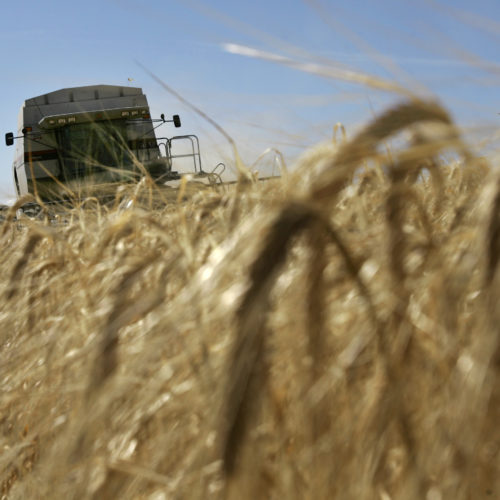
What Is The Toll Of Trade Wars On U.S. Agriculture?
The recently signed Phase 1 U.S.-China deal promises some relief. Details remain unclear, but the United States government’s interpretation of this deal is that China will purchase $40 billion of agricultural goods in 2020. Some analysts have questioned how realistic those estimates are, given that the highest level of farm products the United States has ever exported to China was $26 billion in 2012, although one Chinese agricultural consultancy company says this can be achieved.
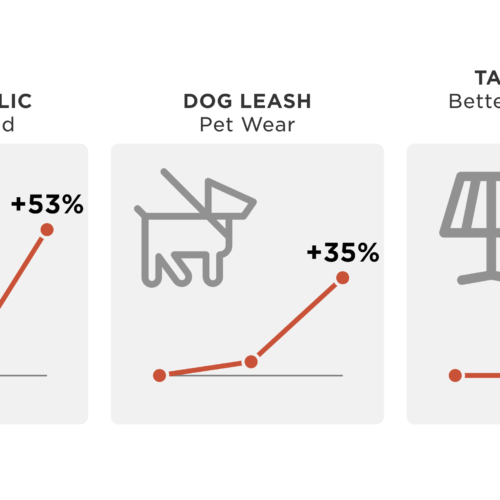
Shopping Cart Economics: How Prices Changed At A Walmart In 1 Year
Since August 2018, NPR has been tracking about 80 items sold at a Georgia Walmart with an eye toward products caught in the trade war. On average, prices rose 3%. Tariffs are one of many factors.
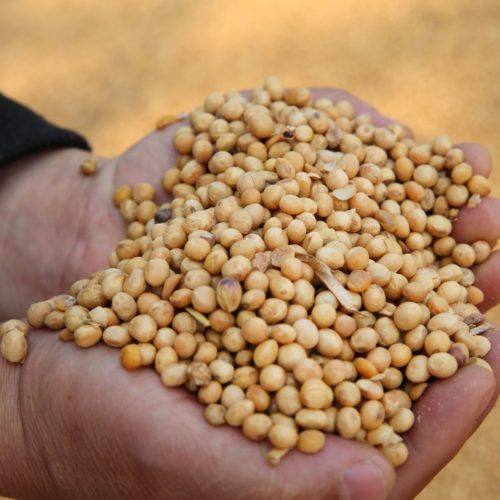
Economists Say Federal Government Is Over-Paying Farmers For Trade Losses
Lots of American companies have lost sales since the Trump administration and China embarked on the current cycle of tariff-raising and retaliation. Few, if any, have been compensated as handsomely as farmers.

